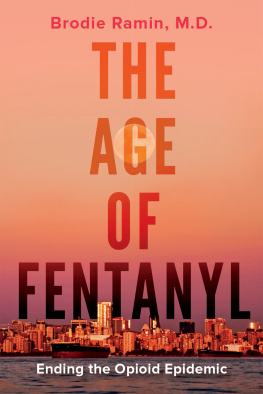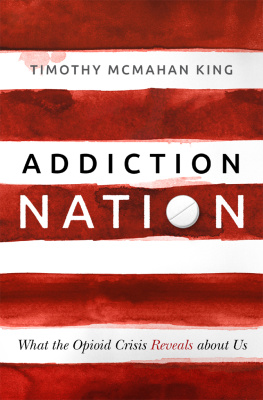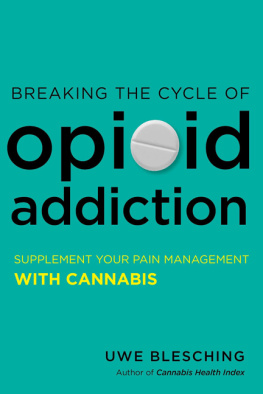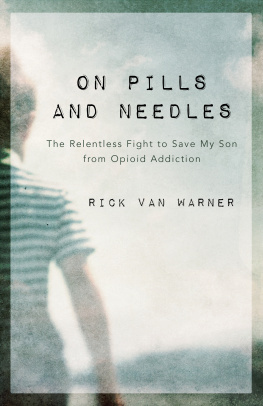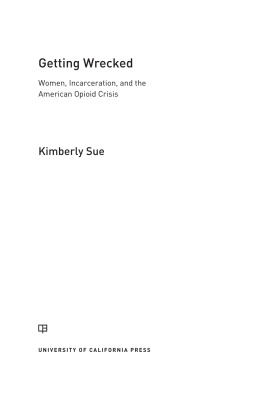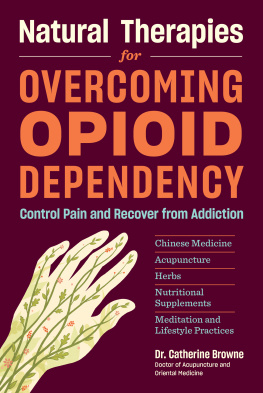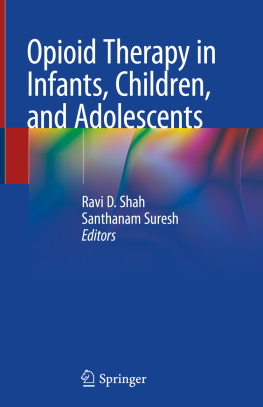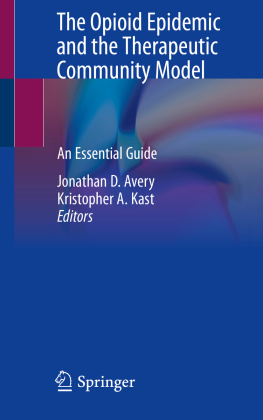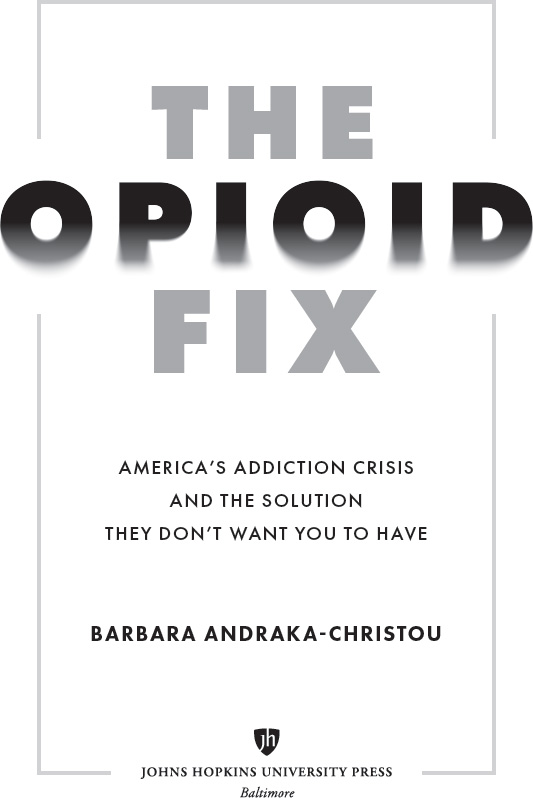Barbara Andraka-Christou - The Opioid Fix: Americas Addiction Crisis and the Solution They Dont Want You to Have
Here you can read online Barbara Andraka-Christou - The Opioid Fix: Americas Addiction Crisis and the Solution They Dont Want You to Have full text of the book (entire story) in english for free. Download pdf and epub, get meaning, cover and reviews about this ebook. year: 2020, publisher: Johns Hopkins University Press, genre: Detective and thriller. Description of the work, (preface) as well as reviews are available. Best literature library LitArk.com created for fans of good reading and offers a wide selection of genres:
Romance novel
Science fiction
Adventure
Detective
Science
History
Home and family
Prose
Art
Politics
Computer
Non-fiction
Religion
Business
Children
Humor
Choose a favorite category and find really read worthwhile books. Enjoy immersion in the world of imagination, feel the emotions of the characters or learn something new for yourself, make an fascinating discovery.

- Book:The Opioid Fix: Americas Addiction Crisis and the Solution They Dont Want You to Have
- Author:
- Publisher:Johns Hopkins University Press
- Genre:
- Year:2020
- Rating:3 / 5
- Favourites:Add to favourites
- Your mark:
The Opioid Fix: Americas Addiction Crisis and the Solution They Dont Want You to Have: summary, description and annotation
We offer to read an annotation, description, summary or preface (depends on what the author of the book "The Opioid Fix: Americas Addiction Crisis and the Solution They Dont Want You to Have" wrote himself). If you haven't found the necessary information about the book — write in the comments, we will try to find it.
Why medication-assisted treatment, the most effective tool for battling opioid addiction, is significantly underused in the United States.
Bronze Winner of the 2021 IPPY Book Award in Health/Medicine/Nutrition, Gold Winner of the 2020 Foreword INDIES Award in Health
Americas addiction crisis is growing worse. More than 115 Americans die daily from opioid overdoses, with half a million deaths expected in the next decade. Time and again, scientific studies show that medications like Suboxone and methadone are the most reliable and effective treatment, yet more than 60 percent of US addiction treatment centers fail to provide access to them.
In The Opioid Fix, Barbara Andraka-Christou highlights both the promise and the underuse of medication-assisted treatment (MAT). Addiction, Andraka-Christou writes, is a chronic medical condition. Why treat it, then, outside of mainstream medicine? Drawing on more than 100 in-depth interviews with people in recovery, their family members, treatment providers, and policy makers, Andraka-Christou reveals a troubling landscape characterized by underregulated treatment centers and unnecessary ideological battles between twelve-step support groups and medication providers. The resistance to MATfrom physicians who wont prescribe it, to drug courts that prohibit it, to politicians who overregulate itshowcases the narrow-mindedness of the system and why it isnt working.
Recounting the true stories of people in recovery, this groundbreaking book argues that MAT needs to be available to anyone suffering from opioid addiction. Unlike other books about the opioid crisis, which have largely focused on causal factors like pharmaceutical overprescription and heroin trafficking, this book focuses on people who have already developed an opioid addiction but are struggling to find effective treatment. Validating the experience of hundreds of thousands of Americans, The Opioid Fix sounds a loud call for policy reforms that will help put lifesaving drugs into the hands of those who need them the most.
Barbara Andraka-Christou: author's other books
Who wrote The Opioid Fix: Americas Addiction Crisis and the Solution They Dont Want You to Have? Find out the surname, the name of the author of the book and a list of all author's works by series.

